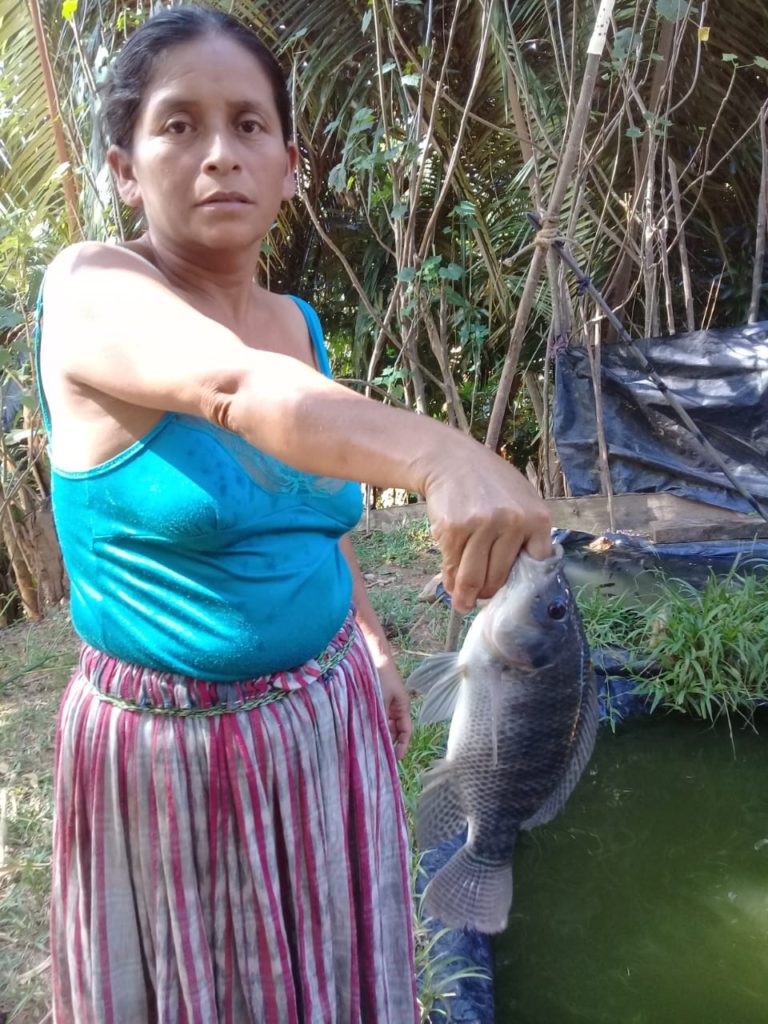
Access to Water Makes Tilapia Farming Possible
Ema’s family is one of five in her community to try their hand at raising tilapia. With support and technical advice from local partner ADIP, she and her husband constructed a 16’ x 26’ pond nearly 3 feet deep with room for up to 50 fish. She’s delighted with the results.
As soon as she moved to her present home a few years ago, Ema prioritized running water. Even though they did not have a lot of money, she purchased the piping necessary to connect to a municipal water source. The debt worried her, but she knew access to water was key to her family’s success in farming and making a life in their new community. She and her husband work hard on their two small plots of land to provide for their four children.
After pandemic lockdowns were eased in September of 2020, ADIP invited Ema to participate in a number of agricultural training sessions. The training modules centered around crop diversification and rotation, root crops, fruit trees, coffee production, and pest and disease control. Families could also consider opportunities in poultry or tilapia production. Ema, thankful that she had a water source, chose the latter.
She says, “When I started with my fish pond, I was excited about having a chance to recover my investment. It’s a relief to be able to improve my family’s diet and to have the hope of generating extra income that will benefit our family. I have seen the generous hand of God through my fish! I am very grateful to have ADIP in our community. They are people who dedicate their lives to helping others by sharing their knowledge and unconditional support with the communities. I am grateful for what they have taught me about agricultural issues. God bless each one of you.
Guatemala Valle del Polochic Program
Led by World Renew and Local Partner Asociación de Desarrollo Integral Polochic (ADIP)
